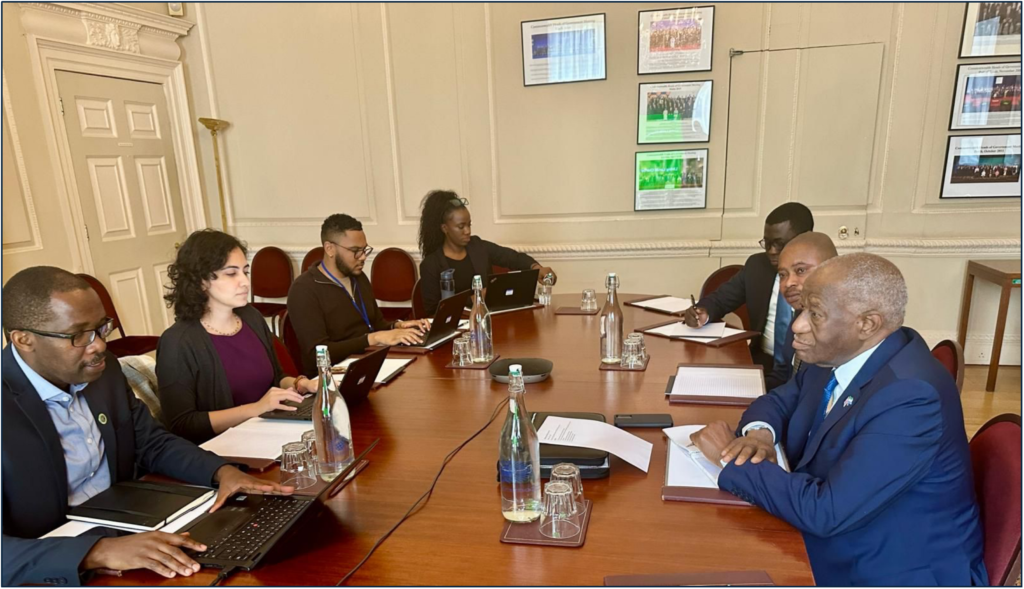His Excellency Dr Morie Komba Manyeh, accompanied by staff from the Sierra Leone High Commission in London, held a productive meeting at Marlborough House with members of the Commonwealth Living Lands Advisory team led by Maxolisi Sibanda.
The discussions focused on the Living Lands Charter, addressing the adverse effects of climate change while looking into specific action points to help tackle challenges such as land degradation, soil impoverishment, and water scarcity. These efforts aim to enhance biodiversity through conservation and land restoration.
Mr Sibanda outlined five cross-cutting thematic areas forming the operational focus of the Commonwealth Living Lands Charter Advisory Group: Climate Resilience Agriculture for Food Security; Sustainable Green Cover and Biodiversity; Soil and Water Conservation; Carbon Neutral and Climate Resilient Livestock Rearing and Animal Husbandry; and Indigenous People and Climate Resilient Development.
Mr Sibanda explained that the Living Land Charter supports member states with sustainable climate projects, including credible national policy development programs. The team also engages in advocacy to appropriately “amplify the voices of small and vulnerable states” in required areas. He noted that advisors have been deployed in 16 countries globally, and said he was looking forward to Sierra Leone joining the expanding membership space and even taking the lead in one of the thematic areas.
In response, High Commissioner, Dr Morie Komba Manyeh, thanked Mr Sibanda and the Commonwealth Advisory team for the invitation and discussions. He acknowledged the serious impact of land degradation and climate change and emphasized the importance of concerted efforts to address this global challenge. Dr. Manyeh highlighted that the “Big 5 Game Changers” national policy of His Excellency President Julius Maada Bio’s government prioritizes food security. He stressed the importance of achieving national food self-sufficiency, noting that Sierra Leone spends huge sums of foreign exchange importing its staple food- rice. “We are working to move from that point to the stage of exporting rice”, he affirmed.
Dr. Manyeh emphasised that “food self-sufficiency and food security” is not just an economic challenge, but is also a political issue, and ultimately a fundamental question of survival! He noted that the increasingly erratic weather pattern and land degradation have exacerbated the hurdle.
Drawing on his experience as a former Minister of Mines and Mineral Resources, and as someone who hails from a mining region, Dr. Manyeh underlined his awareness of the impact of severe land degradation on health and livelihoods. He emphasized that climate resilience agriculture for food security is a major national priority for Sierra Leone.
During the discussions, it was also revealed that upon registration, Sierra Leone could potentially access climate finance and technical assistance available to member countries of the Living Lands Charter. This support includes developing policy and closing legal loopholes exploited by some mining companies.
Additionally, collaborative efforts in monitoring the effective execution of corporate social responsibility, with its underlying promotion of education, health, and well-being, were highlighted as promising areas of synergy.
